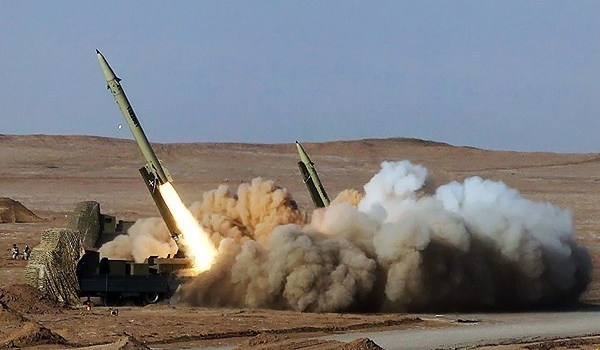
RNA - Kazzem Jalali said that, together with the parliamentary committee on national security and defense, the center would consider a 20-point program of emergency measures to counter the US sanctions.
“As part of this plan, the government will earmark 1 billion tomans ($300 million) for the Islamic Revolutionary Guard Corps (IRGC) and as much towards the development of the country’s missile program,” Jalali said in an interview with Sputnik Persian.
The emergency plan deals with issues like US support of terrorism, human rights violations in the US, measures to counter US economic sanctions, support for the Iranian armed forces and coordination of actions against US terrorist policies in the region.
Emad Abshenas, a managing editor of the newspaper Iran Press and a longstanding Sputnik expert, said that the IRGC was Iran’s main defense against US economic and military terror in the region.
“The plan focuses on countermeasures to the terrorist policy the US is spreading in the world. This includes Iranian sanctions against organizations, which have close links to Washington and provide financial assistance to terrorists, sell them arms and violate human rights,” Emad Abshenas said.
He described the IRGC’s elite unit, the Quds Force, as the main line of defense against “US terrorism and crimes,” and said that the IRGC and the Iranian missile program have helped keep terrorists away from the country’s borders.
“Moreover, these two shields [IRGC and the missile program] are serving the interests of the entire Middle Eastern region by fighting terrorists in Syria and Iraq. That’s why terrorism in the Middle East simply can’t be rooted out without the IRGC,” Emad Abshenas emphasized.
He added that with its attempts to introduce new sanctions against Iran, the United States has violated the terms of the nuclear deal reached in 2015 between the Islamic Republic of Iran and a group of world powers.
“We signed that agreement to show the world that the Iranian nuclear program is purely peaceful and that we are implementing our international obligations. It is the US that is walking back on its commitments. According to this plan, Iran will feel free to suspend the implementation of the nuclear agreement if any other signatory violates its terms,” Emad Abshenas noted.
On June 15, the US Senate approved, by an overwhelming majority, an Iran sanctions bill, which included an amendment of new anti-Russian sanctions.
The latter was a response to the Kremlin’s alleged interference in the 2016 presidential election. On June 21, media reported that because the bill violates the US constitution, its consideration by the US House of Representatives faces a number of procedural hurdles.
847/940